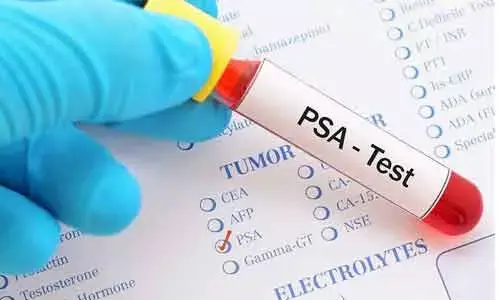- Home
- Medical news & Guidelines
- Anesthesiology
- Cardiology and CTVS
- Critical Care
- Dentistry
- Dermatology
- Diabetes and Endocrinology
- ENT
- Gastroenterology
- Medicine
- Nephrology
- Neurology
- Obstretics-Gynaecology
- Oncology
- Ophthalmology
- Orthopaedics
- Pediatrics-Neonatology
- Psychiatry
- Pulmonology
- Radiology
- Surgery
- Urology
- Laboratory Medicine
- Diet
- Nursing
- Paramedical
- Physiotherapy
- Health news
- Fact Check
- Bone Health Fact Check
- Brain Health Fact Check
- Cancer Related Fact Check
- Child Care Fact Check
- Dental and oral health fact check
- Diabetes and metabolic health fact check
- Diet and Nutrition Fact Check
- Eye and ENT Care Fact Check
- Fitness fact check
- Gut health fact check
- Heart health fact check
- Kidney health fact check
- Medical education fact check
- Men's health fact check
- Respiratory fact check
- Skin and hair care fact check
- Vaccine and Immunization fact check
- Women's health fact check
- AYUSH
- State News
- Andaman and Nicobar Islands
- Andhra Pradesh
- Arunachal Pradesh
- Assam
- Bihar
- Chandigarh
- Chattisgarh
- Dadra and Nagar Haveli
- Daman and Diu
- Delhi
- Goa
- Gujarat
- Haryana
- Himachal Pradesh
- Jammu & Kashmir
- Jharkhand
- Karnataka
- Kerala
- Ladakh
- Lakshadweep
- Madhya Pradesh
- Maharashtra
- Manipur
- Meghalaya
- Mizoram
- Nagaland
- Odisha
- Puducherry
- Punjab
- Rajasthan
- Sikkim
- Tamil Nadu
- Telangana
- Tripura
- Uttar Pradesh
- Uttrakhand
- West Bengal
- Medical Education
- Industry
COVID-19 infection raises serum PSA levels in men with benign prostatic hyperplasia: Study

Turkey: In men diagnosed with benign prostatic hyperplasia (BPH), SARS-CoV-2 infection causes significant increase in the levels of serum PSA during the disease's active period, reveals a recent study. This implies that PSA (prostate-specific antigen) reading made during the period of acute infection should be interpreted with caution. The study appears in the journal Urology.
Ahmet Emre Cinislioglu, Erzurum Regional Training and Research Hospital, Erzurum, Turkey, and colleagues conducted the study with an objective to investigate the effect of SARS CoV-2 on serum total PSA levels in men with BPH diagnosed with COVID-19.
For this purpose, the researchers retrospectively examined the PSA levels in patients who had had a PSA check at least 3 months, but no more than 6 months, prior to diagnosis of acute COVID-19 infection. They measured and recorded PSA levels from these patients on the first day of COVID-19 diagnosis. Then they compared PSA levels measured in the pre-COVID-19 period, during the period of active infection with COVID-19, and in the post-COVID-19 period.
The study revealed the following findings:
· In total, 91 patients had a serum PSA level of 1.58 ± 1.09 ng/mL in the pre-COVID-19 period, a serum PSA level of 4.34 ± 3.78 ng/mL measured in the COVID-19 period and 2.09 ± 2.70 ng/mL in the post-COVID-19 period.
· It was determined that the serum PSA level measured during active COVID-19 infection was statistically significantly higher than the PSA levels measured according to the pre-COVID-19 period and the post-COVID-19 period.
"COVID-19 infection causes elevations in serum PSA levels in men with BPH," the authors wrote. "Measuring PSA levels used in the diagnosis, differential diagnosis, and follow-up of prostate diseases in the acute period of infection and in the early period after infection treatment may cause false evaluations. This may affect the diagnosis and treatment steps of prostate diseases in these patients."
Reference:
The study titled, "Variation of Serum PSA Levels in COVID-19 Infected Male Patients with Benign Prostatic Hyperplasia (BPH): A Prospective Cohort Studys," was published in the journal Urology.
Dr Kamal Kant Kohli-MBBS, DTCD- a chest specialist with more than 30 years of practice and a flair for writing clinical articles, Dr Kamal Kant Kohli joined Medical Dialogues as a Chief Editor of Medical News. Besides writing articles, as an editor, he proofreads and verifies all the medical content published on Medical Dialogues including those coming from journals, studies,medical conferences,guidelines etc. Email: drkohli@medicaldialogues.in. Contact no. 011-43720751


